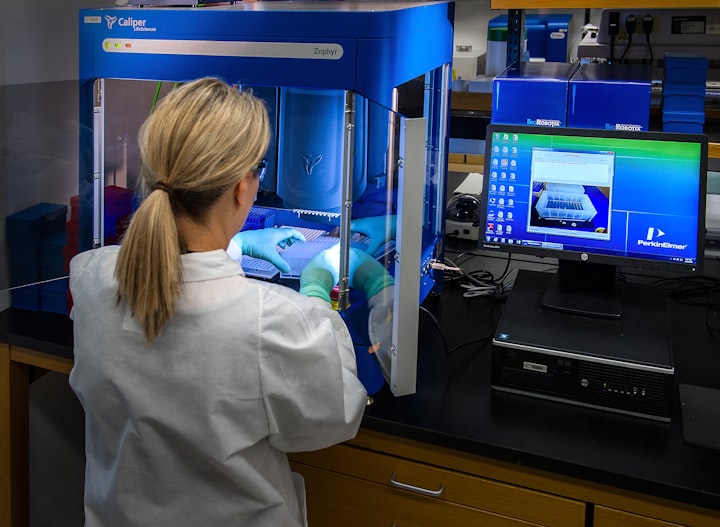Here is How Technology is Changing the Way Health Industry Works
Innovations in the health industry and entering a digital era
The Healthcare industry is one of the fastest-growing and the world’s second-largest service sectors.
According to researchers and academics, the total contribution of the health sector to the gross domestic product has been estimated to be 10 percent for developed countries.
Thus, it is believed that the healthcare sector can significantly improve the economy of a nation. The healthcare industry is complex and highly driven by globalization, intense competition and market trends, and governmental legislation and policies.
The healthcare sector is a vast field, including myriad industries and sub-industries with the main focus is on health and medical care.
Health care industries cover areas of pharmacy, biotechnology, equipment, distribution, and properly managed medical care facilities. They cater to the needs and health of patients; providing advanced treatments and medical facilities.
With the increase in population and other socio-economic issues, there is a visible responsibility for the healthcare industry to be accessible, responsive, affordable, and more technologically advanced.
The professionals are working on different networks to manage the devices used in healthcare, for example, the Cisco Medical-Grade Network connects every stakeholder in the healthcare sector to communications infrastructure to deliver important healthcare resources anywhere, through any device.
The collaboration between the caregivers is beneficial for the patients as it enhances the safety issues of patients, provides proper attention to every ailed person, and optimizes technology investments by integration with various applications.
In the healthcare sector, high-quality service indicates that patients are diagnosed accurately and properly, provided efficient treatment, which would improve their health outcomes. If the clinician had failed to diagnose the disease correctly, it is bound to have negative outcomes and a very bad impact on the patient’s health.
Therefore any blunder in the healthcare sector is unacceptable. E-Health is based on information technology and electronic communication, to revolutionize healthcare organizations and the way healthcare operations work.
Digital technology and 3D printed drugs are giving a whole new dimension to the Healthcare industry.
However, there are still discourses on how the healthcare industry is not as facilitated as other industries like telecommunications and retail in deploying the emerging technologies.
Global Life Sciences Outlook 2017 review focused on the increasing demand of the aging population and the sinister and prevailing issues of chronic diseases with a view of technological solutions.
Therefore the discourses related to healthcare technology are eventually beneficial for bringing out a revolution in the E-Health sector; making it more of a patient-centered approach.
Use of Digital Technology
The use of smartphones plays an important role in improving health and social care services.
By the use of various healthcare, medical and fitness apps like My Fitness Pal, Smartphone holders are encouraged to keep a check on their health, improve and monitor their health in a better way.
According to BBC Research, the value of healthcare apps and mobile technology in 2013 was $2.4 billion and it is forecasted to reach $21.5 billion by 2018 and Europe will take over North America as the biggest health market by 2018. Dr. Maureen Baker, who chairs the Royal College of General Practitioners, is of the view that:
“Mobile phone apps and medical devices have huge potential to support patients and the health professionals who provide their care. We have concerns about the patient safety implications. Patients will be having consultations with GPs who are unfamiliar with — and won’t necessarily have access to — their medical history, or information about drugs that they have been prescribed.”
Similarly, Dr. Ali Parsa the CEO of digital healthcare company Babylon is of the view that mobile phones are the most important device we can use to change the face of healthcare.
Parsa’s app Babylon Health will help you type any question regarding your health; professional and efficient doctors will respond to you in a minute with a solution.
Technological innovations
There are some brilliant innovations in the field of technology regarding healthcare. A cure has been devised for melanoma cancer with the invention of the MelaFind optical scanner; which gives an accurate diagnosis as well as additional information to the doctor regarding biopsy.
Due to this scanner, the costs of unnecessary procedures have diminished and it aims to cure patients on a large scale.
For migraines and cluster headaches the clinical technology has devised electronic aspirin at Autonomic Technologies, Inc. there have been treatments for diabetes as well as heart attack with the help of technology.
The health industry is improving to a great deal and aims at providing the best health care for a vast number of the population.
Medical robots are autonomous navigation remote presence robots manufactured by iRobot Corp and InTouch Health. These robots walk in the hospital hallways on routine rounds to check on patients in different rooms. These robots manage the patient’s individual charts and vital signs without direct human interaction.
Apart from that, for many other technological innovations in the healthcare sector, visit referral MD Healthcare technological Review: 2017
Technology supporting patients
Technology has proven to be a source of light for patients in their hours of darkness.
Dementia is a term linked with cognition and encompassing a wide range of symptoms with no possible cure. People are unaware of the symptoms of dementia and delay their diagnosis which results in permanently damaged memory loss.
Assistive technology such as walking sticks and frames, calendar clocks, bath aids, telecare, and automatic lighting among others are very beneficial for the patients suffering from dementia as this disease causes a decline in the thinking abilities of a person and he is absent-minded enough at times to remember clearly.
Supportive technologies assist the patients and their caretakers in task completion while preventive technologies protect the patients from harm.
Medication organizers, wearable ID program devices, location technology, bed occupancy sensors, door security bars, touchpad key locks, and window sensors are among the major safety devices used to prevent harm to the patient.
Due to a lack of strength in dementia patients, they avoid technological devices. This causes isolation and prevents them from improving their situation.
Healthcare applications play a vital role in connecting dementia patients with the world around them.
Overall, technology is the key to changing the world around us. It is allowing the health industry to mold into the new digital era. Technology is a source of empowerment for the people throughout history.
The earliest reviews fetched on the impacts of health IT focused more on the merits of Healthcare technology and how these benefits are confined to larger organizations only.
Nowadays the major focus is to make the advantages of healthcare technology more widely attainable and cost-free. According to a survey on the benefits of Health information technology, out of 154 studies, 92 were positive regarding progress and health improvement whereas the rest were mixed-positive.
The technology used nowadays is more advanced, interactive, and adaptable. It is making this world a better and human-friendly place, aligning with our wants and needs.
The health industry should strive forward to produce technology that works for the benefit of people. The ultimate goal is not to build technology tools but to design them for the treatment and cure of various deadly diseases.
It is to improve the quality and reduce the cost so even those people who are not economically stable can afford the treatments provided by E-health and telecare.
Software programs are designed for the specific purpose of keeping a check on the statistics and helping the population with a better diagnosis.
The world is surely moving towards progress with the advancement in the health industry.
About the Creator
Umama Zahir
My name is Umama. I am passionate about writing and strive to create pieces that leave a lasting impact on my readers. Through my work, I aim to convey the depth of emotions and explore themes that truly resonate with the core of our being.







Comments
There are no comments for this story
Be the first to respond and start the conversation.